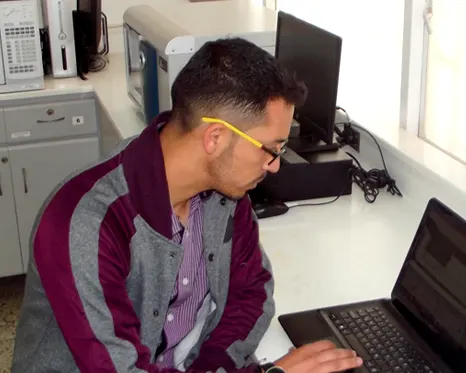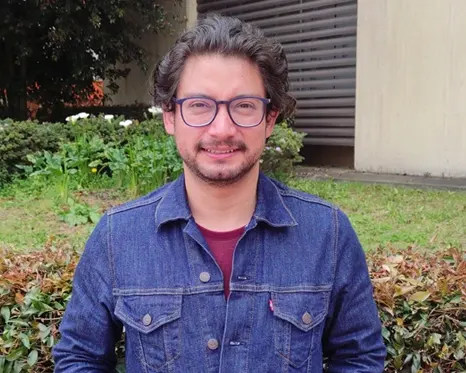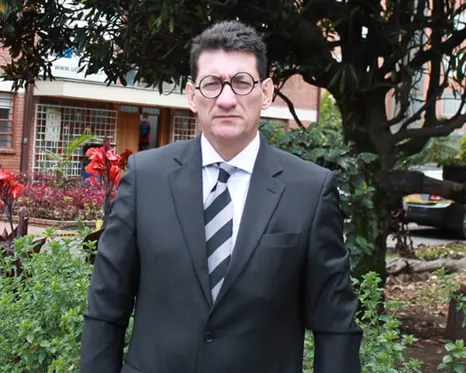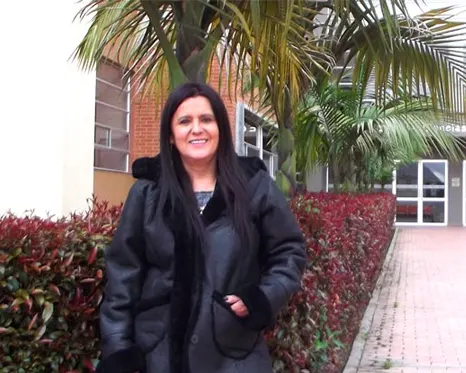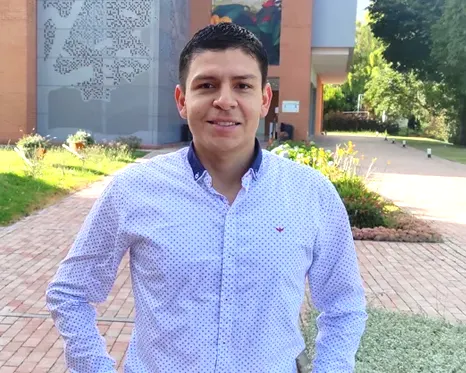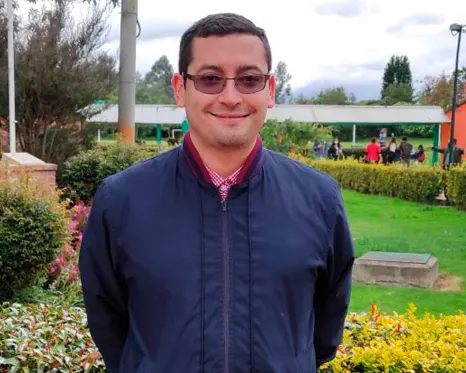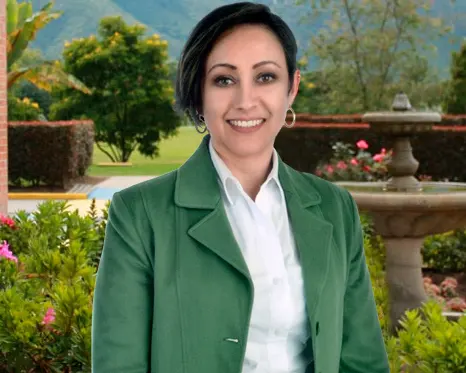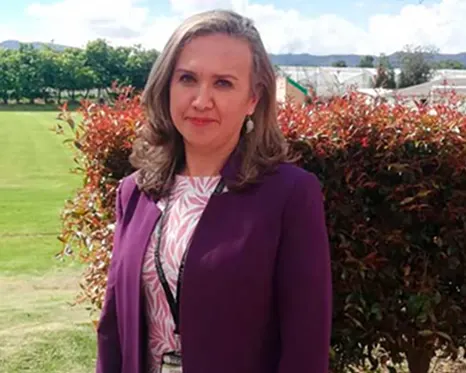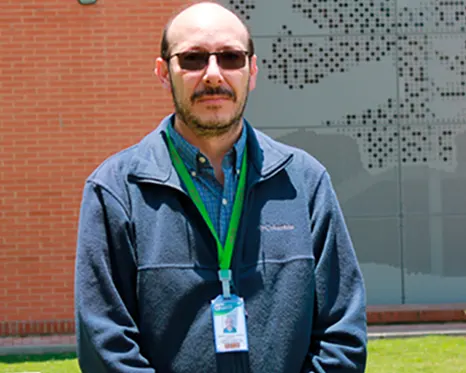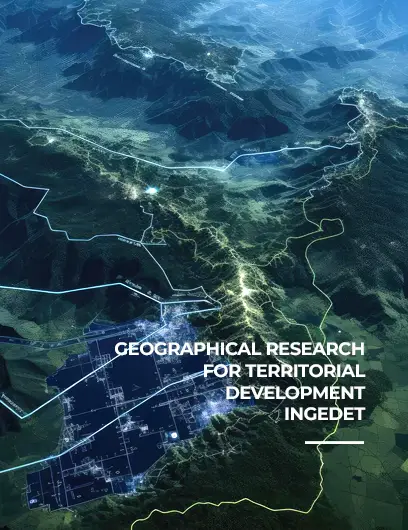Degree Awarded: Master’s Degree in Socio-environmental Management
Level of study: Master’s degree
Duration: 4 semesters
Mode: Face-to-face
SNIES Code: 104061
Qualified Registration: Resolution No.005637 of March 30, 2021, awarded by MINEDUCACIÓN
Total Credits: 45
Number of Credits I Semester: 14
Credit value Year 2024: $ 788.000
Tuition Fee 1st Semester Year 2024: $ 11.032.000
Academic Space: Calle 222 # 55 – 37
Contact: María Mercedes Callejas
Telephone: (60 1) 6684700, extension: 513
E-mail: [email protected]
*The cost of tuition from the second academic semester onwards will depend on the number of academic credits enrolled.
We are a University with High Quality Institutional Accreditation: Resolution 017390 of December 27, 2019 (for 4 years), granted by MINEDUCACIÓN.
Why study MASTER IN SOCIO-ENVIRONMENTAL MANAGEMENT
MASTER IN SOCIO-ENVIRONMENTAL MANAGEMENT
The Master’s Degree in Socio-environmental Management offers its students the possibility of comprehensively addressing the problems arising from human intervention in the physical-biotic environment. The profile adopted by the postgraduate programme is to contribute to the creation of master’s degree students who holistically and systematically address socio-environmental problems and contribute to effective and efficient solutions.
Objective of the programme
To train professionals specialised in socio-environmental management at an advanced level, from an interdisciplinary, systemic and complex scientific perspective, open to dialogue with other fields of knowledge.
PROFILES
Entry profile
The applicant to the MGSA Programme must be a person with sensitivity for the environment, interested in deepening knowledge about the processes of socio-environmental management, linked to and interested in socio-environmental issues, possessing a critical spirit and teamwork skills. They must have a professional degree in any disciplinary or professional field, which is a requirement of Law 30 of 1994 for participation in postgraduate programmes.
Profile of graduates
The graduate of the Master’s Degree in Socio-environmental Management is a professional who masters concepts, principles and methods for integrating, planning and developing research projects in socio-environmental management, as they have the scientific and instrumental foundations that enable them to structure and execute projects aimed at solving problems arising from socio-environmental dynamics.
Occupational profile
Graduates of the Master’s Degree in Socio-environmental Management will be able to work in both public and private entities, academic institutions and NGOs to: 1. Develop and apply models of social and economic development in relation to the environment. Elaborate and propose public policies in social and environmental matters. 3. Design, implement and operate projects for environmental management. 4. Plan, administer and evaluate sustainable development projects. 5. To generate interaction between the public and private sectors in environmental matters. 6. Generate proposals for entrepreneurship, development and technological innovation 7. Manage private, public and third sector organisations, especially those dedicated to conservation. 8. Manage development processes. Design and execute social programmes. 9. Design and apply models and systems of environmental management.

DISTINCTIVE FEATURES OF THE
PROGRAMME
Énfasis en el saber hacer
Un Magíster en Gestión Socioambiental, es un profesional íntegro que tiene en claro los saberes teóricos y principalmente prácticos, en torno a la normatividad presente a nivel internacional, nacional, regional y local, como también las potencialidades y debilidades de las herramientas e instrumentos cuantitativos y cualitativos pertinentes al diagnóstico, análisis, diseño, ejecución y seguimiento en propuestas de gestión socioambiental. El saber hacer deriva indefectiblemente en el ser; lo que constituye el ethos de un profesional de la gestión socioambiental.
Formación tendiente a la complejidad
La Maestría en Gestión Socioambiental, no es exenta de los avances científicos en otras áreas del saber similares, como las ciencias ambientales, educación ambiental, Agroforestería y gerencia y gestión de Residuos. En tal sentido, la integralidad de un maestrante radica en la incorporación de elementos conceptuales y prácticos, tendientes a mejorar la práctica de la gestión entendida como una transformación de la realidad mejorable a una situación sostenible y sustentable de los territorios.
Denominación
La Maestría en Gerencia y Gestión Integral de Residuos Sólidos se basó en una propuesta académica del Consorcio Universitario para la Gestión Sostenible de Residuos en América Latina y El Caribe, impulsado y auspiciado por ONU MEDIO AMBIENTE AMÉRICA LATINA Y EL CARIBE. Adicionalmente, a 2020, el Programa de Maestría en Gerencia y Gestión Integral de Residuos Sólidos es el único a este nivel de educación avanzada en Colombia y en América Latina y el Caribe y hace parte de los programas académicos adscritos al Consorcio Universitario para la Gestión Sostenible de Residuos en ALC.
TEACHERS
Luis Eduardo Beltrán
Ingeniero en Recursos Hídricos y Gestión Ambiental de la Universidad Central de Colombia; Especialista en Planeación Ambiental y Manejo Integral de los Recursos Naturales, con Maestría en Ciencias Ambientales, de la Universidad de Ciencias Aplicadas y Ambientales (UDCA). Profesor e investigador, con interés en el estudio de las cuencas hidrográficas como sistema complejo. Su campo…
Danilo Castro
Ingeniero Geógrafo y Ambiental de la U.D.C.A. Magíster en estudios urbanoregionales de la Universidad Nacional de Colombia – Sede Medellín. Su experiencia profesional, especialmente en trabajo de campo le llevó a centrarse en las preguntas por la ruralidad contemporánea y la búsqueda de iniciativas de desarrollo rural que apunten a una relación más armónica entre…
Fernando Sánchez
Postdoctorado/Estancia postdoctoral Instituto de Pensamiento Complejo. Doctorado en Prensamiento Complejo, incio Agosto 2015, actualmente. Doctorado CUJAE. Doctorado en Ciencias Técnicas. Maestría en medio ambiente y desarrollo de la Universidad de Colombia Maestría en Ecoauditorías y Planificación Empresarial Instituto de Investigaciones Ecológicas. Especialista en pedagogía y docencia Universitaria de la Universidad la Gran Colombia. Especialización en…
Claudia Marcela Velásquez
Enfermera de la Universidad Nacional de Colombia. Magister en Psicología Comunitaria. Pontificia Universidad javeriana y Especialista en Filosofía de la Ciencia. Actualmente es Directora del Programa Enfermería de la Universidad de Ciencias aplicadas y Ambientales e Investigadora Junios MinCiencias
Álvaro Javier Ávila
Soy Ingeniero Agrícola (2012) de la Universidad del Valle (Colombia). Fui Joven investigador del Departamento Administrativo de Ciencia, Tecnología e Innovación de Colombia – COLCIENCIAS. Tengo una Maestría (2016) y un Doctorado (2020) en Meteorología Aplicada de la Universidade Federal de Viçosa (Brasil). Hice parte de mi Doctorado en Ohio State University en el The Byrd…
Oscar Luis Pyszczek
Profesor en Geografía (2008), Licenciado en Geografía (2012), Especialista en Educación y TIC (2014) y Doctor en Geografía (2014), competente en el establecimiento de relaciones entre los componentes físicos, biológicos y humanos del espacio geográfico. En lo profesional me considero responsable, aplicado, activo y dedicado. Desde un punto de vista personal, el ejercicio profesional lo…
Luz Piedad Romero Duque
Soy Doctora en Ciencias Biológicas de la Universidad Nacional Autónoma de México, Magister en Ciencias Biológicas de la Universidad Nacional de Colombia, Especialista en Docencia para la Educación Superior de la U.D.C.A y Bióloga de la Pontificia Universidad Javeriana. Mi actividad académica ha sido de carácter interdisciplinar colaborando en actividades de docencia en pregrado y posgrado con diferentes disciplinas…
Henny Margoth Santiago Villa
Antropóloga de la Universidad Nacional de Colombia, Especialista en Pedagogía y Docencia Universitaria, Magister en Investigación Social Interdisciplinaria. Candidata a Doctora en Ciencias Ambientales. Profesora de la Facultad de Ciencias Ambientales de la U.D.C.A en las áreas de Ciencias Sociales e Historia Ambiental. Intereses de investigación: Historia Ambiental de la sabana de Bogotá, Humedales, Borde…
Sergio Córdoba Córdoba
Doctor en Ecología y Biología Evolutiva de la Universidad de Princeton (USA), y Biólogo de la Universidad Nacional de Colombia. Interesado en entender los procesos que generan diversidad y especiación. Para ello he explorado las causas que ocasionan los patrones de distribución de especies a diferentes escalas espaciales, lo cual implica relaciones históricas – evolutivas…

LINES OF
RESEARCH
Clima y gestión del riesgo
Efectuar estudios que conduzcan al conocimiento del comportamiento, causas y consecuencias de la variabilidad y cambio climático sobre el territorio.
Geografía aplicada
Integrar los diferentes enfoques de la geografía para aportar a la solución de problemas territoriales.
Paisaje y sostenibilidad
Los objetivos específicos son: (1) Motivar la reflexión de problemáticas asociadas al paisaje y a sus habitantes, vinculando sus implicaciones en la sostenibilidad. (2) Fomentar el análisis crítico del paisaje y la sostenibilidad en problemas o situaciones reales. (3) Fortalecer el conocimiento integrado con otros programas y facultades de la Universidad con otras Instituciones de carácter nacional e internacional, así como con asociaciones y/o comunidades locales.
LEAVE YOUR MARK ON THE ENVIRONMENT











